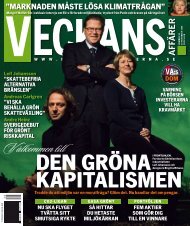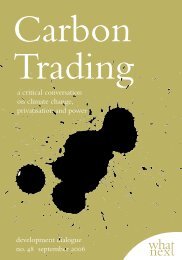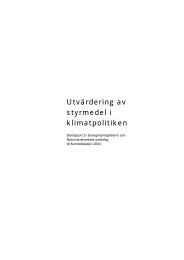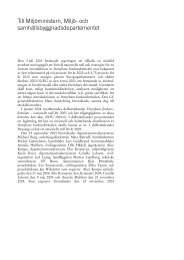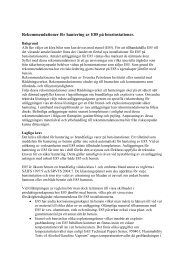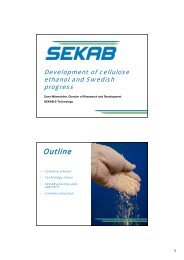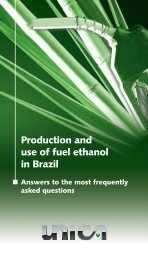Sugarcane ethanol: Contributions to climate change - BAFF
Sugarcane ethanol: Contributions to climate change - BAFF
Sugarcane ethanol: Contributions to climate change - BAFF
You also want an ePaper? Increase the reach of your titles
YUMPU automatically turns print PDFs into web optimized ePapers that Google loves.
Impacts of sugarcane bio<strong>ethanol</strong> <strong>to</strong>wards the Millennium Development Goals<br />
Box 3. Unfair distribution of benefits against small farmers - middleman in Pakistan.<br />
In Pakistan, where bio<strong>ethanol</strong> is produced from sugarcane molasses, middlemen play a key role<br />
in sugarcane procurement and often end up exploiting small-scale farmers forcing them <strong>to</strong> sell at<br />
distress prices. In collusion with mill owners, they orchestrate delays at the mill gate; the problem<br />
becomes exacerbated during surplus years. The farmer has no option but <strong>to</strong> accept the price<br />
offered (lower than the support price) or face further delays. Large farmers are better placed<br />
as their crop represents a large proportion of the mill intake and they also have greater political<br />
clout. Small farmers are indebted <strong>to</strong> middlemen for their consumption and input needs, which<br />
also leads <strong>to</strong> under pricing. Further, a report by the Agricultural Prices Commission of Pakistan<br />
indicates that the scales installed <strong>to</strong> weigh sugarcane do not provide correct readings. However,<br />
given the high level of illiteracy among small-scale growers, such practices go undetected.<br />
Moreover, mills are also known <strong>to</strong> make undue deductions contending that sugarcane quality is<br />
low and contains high trash content.<br />
Source: adapted from Rafi Khan et al. (2007).<br />
cooperatives in which farmers also hold ownership shares in the fac<strong>to</strong>ry (ICRISAT, 2007).<br />
�e South African sugar industry distinguishes itself by operating a successful small-scale<br />
outgrower scheme, which supplies 11 percent of the country’s sugarcane under contract<br />
farming arrangements <strong>to</strong> one of the three major mills (Cartwright, 2007).<br />
�e need for economies of scale <strong>to</strong> increase competitiveness constitutes a pressure <strong>to</strong> reduce<br />
costs. �e main mechanisms for doing this – introduction of improved varieties, switch away<br />
from diversi�ed production systems <strong>to</strong> monocropping, move <strong>to</strong> larger land holdings, and<br />
shi� <strong>to</strong> increasingly capitalised production - are di�cult or risky for small producers. For<br />
example, in Brazil, selection of improved cane varieties (e.g. energy cane) and investment<br />
in irrigation have helped <strong>to</strong> improve yields but the bene�ts of these have mostly been felt on<br />
plantations. Other mechanisms, such as increasing labour productivity without increasing<br />
wages, are likely <strong>to</strong> be detrimental <strong>to</strong> poor households (Peskett et al., 2007). �is presents<br />
a serious challenge <strong>to</strong> identifying pro-poor biofuels production systems.<br />
Analysis by a UN consortium suggests that e�cient clusters of small and medium-scale<br />
enterprises could participate e�ectively in di�erent stages of the value chain (UN-Energy,<br />
2007). �e main challenge is how <strong>to</strong> provide appropriate policy conditions <strong>to</strong> promote valuesharing<br />
and prevent monopolisation along the chain (Dufey et al., 2007b). Controlling valueadded<br />
parts of the production chain ‘is critical for realising the rural development bene�ts and<br />
full economic multiplier e�ects associated with bioenergy’ (UN-Energy, 2007). In countries<br />
such as �ailand policy interventions are addressing the sharing of the earning between<br />
sugarcane growers and producers (70% and 30%, respectively). However, for bio<strong>ethanol</strong><br />
<strong>Sugarcane</strong> <strong>ethanol</strong> 213



